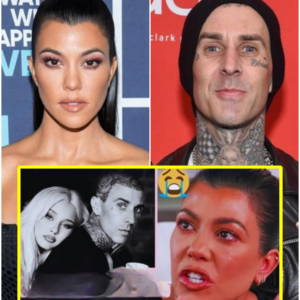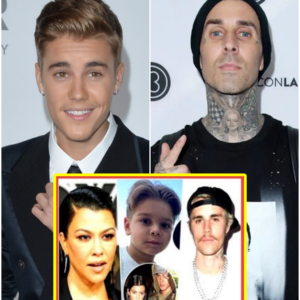In the world of hip-hop, few stories rival the saga of Rockefeller Records, Jay-Z, and Dame Dash. Their rise from indie hustlers to industry giants was legendary, but so was their fall marked by betrayal and business upheaval.
The Rockefeller journey began in 1996 when Jay-Z, alongside partners Dame Dash and Kareem “Biggs” Burke, launched their independent label. Fueled by Jay-Z’s debut album, “Reasonable Doubt,” the label quickly became a powerhouse, signing talent and forging deals that shook the music world.
However, by the early 2000s, tensions brewed. Dame Dash’s ambition clashed with Jay-Z’s evolving vision, culminating in a rift exacerbated by business decisions and personal differences. Reports surfaced of internal strife, including Dame’s attempt to elevate artists like Cam’ron within the label hierarchy, a move allegedly opposed by Jay-Z.
The pivotal moment arrived in 2004 when Jay-Z ascended to the presidency of Def Jam, effectively shifting the balance of power within Rockefeller. He brokered a deal where Def Jam purchased the remaining shares of Rockefeller, sidelining Dame and Biggs. This move, while strategically sound for Jay-Z’s career, signaled the end of an era for Rockefeller as an independent force.
Dame Dash’s subsequent accusations were damning. He alleged that Jay-Z’s partnership with Def Jam and figures like Lyor Cohen marginalized him and other black artists, perpetuating a cycle of exploitation in the industry. Dame’s outspokenness didn’t wane; he continued to criticize Jay-Z’s business ethics and alliances, claiming they compromised the integrity of Rockefeller’s original vision.
Jay-Z’s response, albeit less vocal, painted a different picture. He defended his decisions as necessary for his personal growth and the survival of Rockefeller amidst a changing music landscape. He acknowledged the emotional fallout but emphasized the pragmatic realities of business and artistic evolution.
The aftermath saw Rockefeller artists choosing sides, with some publicly aligning with Dame Dash’s post-Rockefeller ventures. Cam’ron, in particular, criticized Jay-Z in his lyrics, alleging betrayal and corporate maneuvering. The divide underscored the personal and professional fallout of the Rockefeller split, leaving a legacy of fractured relationships and unresolved grievances.
Ultimately, the Rockefeller saga serves as a cautionary tale of ambition, loyalty, and the complex dynamics of power in the music industry. It highlights the challenges faced by black entrepreneurs navigating a predominantly white-controlled business environment, where success often comes at the cost of personal relationships and artistic integrity.
In conclusion, while Jay-Z’s career soared post-Rockefeller, the wounds of betrayal and controversy remain raw for Dame Dash and others impacted by the fallout. The legacy of Rockefeller Records, once a symbol of black excellence and independence, now carries the scars of internal strife and external pressures.
News
(B) Travis Barker MISSED when Kourtney Kardashian returned home drunk after Kardashians party. (VIDEO)…
Courtney Kardashian made headlines just seven weeks after giving birth when she decided to attend the annual Kardashian Jenner Christmas party sans pants. Despite recently welcoming her fourth child, Rocky, with boyfriend Travis Barker, Courtney seemed anything but tired as…
(B) Kourtney Kardashian Shocking Revelation on Why Her Relationship with Travis Barker Ended. (VIDEO)…
In the public eye, Travis Barker and Courtney Kardashian’s relationship was once perceived as an unbreakable union, filled with passion and devotion. However, recent revelations paint a vastly different picture, revealing the underlying turmoil that ultimately led to its demise….
(B) Kourtney Kardashian SECRET XTAPE With Minor Justin Bieber REVIEWED by The Feds. (VIDEO)
The recent discovery of a video purportedly featuring Courtney Kardashian and Justin Bieber has ignited a firestorm within the entertainment industry, prompting intense speculation about its potential ramifications. This revelation, coupled with reports of a raid on Diddy’s home, has…
(B) EXTREMELY SHOCKING: Kris Jenner Lied About DNA Test To Khloe Kardashian As O.J. Simpson Could Be Her Father. (VIDEO)..
In a moment etched into the memories of internet users, Chris Jenner once orchestrated a dramatic DNA test to dispel rumors surrounding Khloe Kardashian’s paternity. Speculations swirled, stemming from Jenner’s revelations in her memoir “Chris Jenner and All Things Kardashian,”…
(B) Kourtney Kardashian finally shows proof her son Reign Disick is actually Justin Bieber’s son. (VIDEO)..
Courtney Kardashian recently embarked on an exciting escapade to Australia and New Zealand with her husband, Travis Barker, for his tour. However, it was their youngest son, Rain, who stole the spotlight during their adventures. With his mischievous antics and…
(B) NEWS HOT; Travis Barker Found Evidence of Kourtney Shared Baby With Justin Bieber (video)…
The rumor mill surrounding Justin Bieber and the Kardashian family has been churning for quite some time, igniting speculation about his connections with various members. While the details are murky and often sensationalized, let’s delve into the complexities of these…
End of content
No more pages to load











